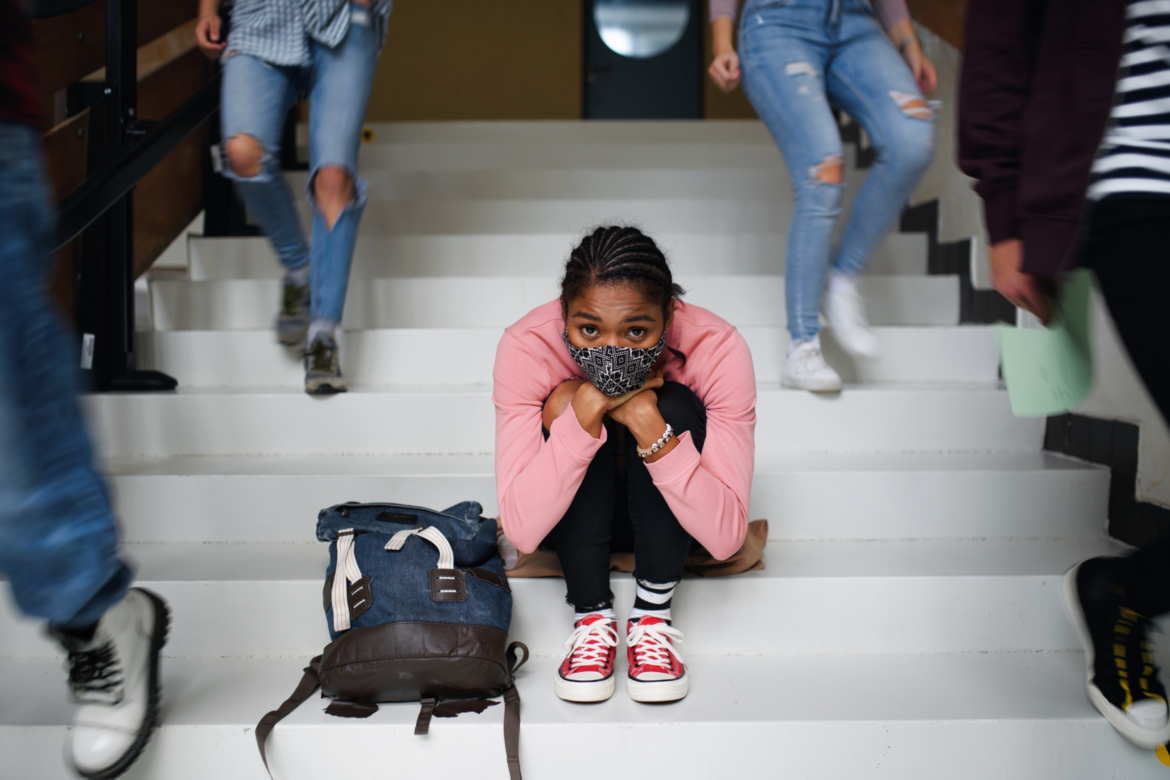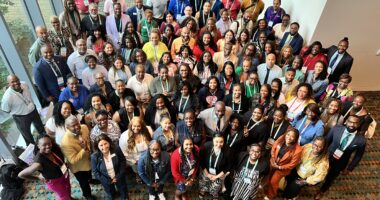4 Strategies to Pivot Post-Pandemic
NAESP conference sessions outline actions principals should consider prioritizing as schools pivot post-pandemic.

In spite of widespread vaccination among educational professionals, the COVID-19 pandemic remained top-of-mind at NAESP’s 2021 Pre-K–8 Principals Conference in Chicago. Whether or not classes are fully in-person, principals have just a few weeks left to survey any damage the pandemic has done and refine their leadership strategies for the 2021–2022 school year.
Life in lockdown produced a generalized anxiety or trauma that left students, parents, and teachers feeling unmoored from the lives they thought they knew, said keynote speaker Ruby Payne, author of Emotional Poverty in All Demographics: How to Reduce Anger Anxiety, and Violence in the Classroom.
Many may have experienced a tragedy such as a death in the family over the past year-and-a-half, and all have faced upheavals. “COVID has been particularly damaging to brain development,” Payne said. “Think about the [survivors] as being injured. We have to begin to give them a coherent story again.”
Here are four things principals can do to give those stories positive endings:
- Defuse Discipline: Discipline issues may emerge at reentry, says Curtis Slater, founder of social, emotional, and behavioral intervention consultancy TILL360, particularly among students unfamiliar with the strictures of a classroom. “What are they doing at home? Where expectations are different?” he asked. “When students struggle, is it the student or the environment? Most disciplinary problems can be explained as a discrepancy between the child’s behavior and adult expectations, Slater noted, and that’s why adults in the room, too, might need Tier 1 interventions. “Disregulated adults cannot regulate kids,” he says. “They only agitate them—and then you have disengaged students, families, and teachers.”
- Hold the ACEs: The pandemic might exacerbate adverse childhood experiences (ACEs) for many students—and especially boys, said NAESP Past President Paul Young in the session “Boys & ACEs: How to Help Those Who Become Bitter Get Better.” ACEs are a big predictor of learning and behavioral problems, and “COVID has only made things worse,” he said. “After COVID, you’ll need to make a fresh start with boys.” Boys have a “code” that prioritizes action over emotion, so “their first response is to get angry,” Young said. “Your impulse may be to control or dominate boys, but there is a better way: Allow them space and give them safety. Peel away the emotions they are experiencing [and] you’ll find that they have been shamed, bullied, and treated unfairly.”
- Build Relationships: Turning around a struggling school or relaunching one post-pandemic requires principals to forge trusting relationships between school leaders, students, parents, and teachers, said Indiana principal Mark Heiden in the session “School Leadership: Working On What Matters.” Once you get their input, change can progress more seamlessly. “If teachers are happy and kids are happy, achievement will follow,” he said. “Be open [and] honest and seek out and accept criticism. Try to give everyone your attention like they are the most important person in the world at that moment. I try to channel that for parents, teachers, and students. That’s going to matter to them a lot.”
- Treat Your Teachers: Principal Edward Cosentino launched multiple efforts to keep morale high among teachers and staff at Maryland’s Clemens Crossing Elementary School during lockdowns, including writing them personal “pandemic postcards” and planting yard signs “to acknowledge all of the hard work they were doing,” he said in his “Happiness at Work: Cultivating a Positive Work Environment” session. “It’s been a tough year—a very tough year.” This fall, Clemens Crossing is not only returning to in-person learning, but it’s also “basically doing a reboot” due to redistricting, Cosentino said, taking in more than 200 new kindergarteners and first graders “who have never been in the building.” He plans to redouble his efforts to keep staff happy with a calendar that’s chock-a-block with appreciation days, potlucks, and outings. “To succeed, you must take care of the people who take care of the kids,” he said.
Teachers deserve special attention, Payne said in her keynote, since they are still processing the trauma of COVID-19. “Wartime veterans don’t fall apart for six to 12 months after they return home, and some of our strongest staff are going to fall apart,” she warned. “It takes a takes a lot of courage to recognize the limitations in your people and the limitations in yourself. Thanks for all of the courage you gave during COVID—and all of the courage you will give next year.”
Ian P. Murphy is senior editor of NAESP’s Principal magazine.




